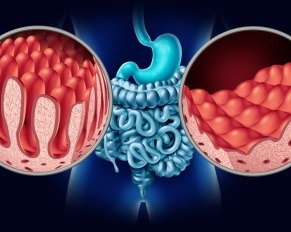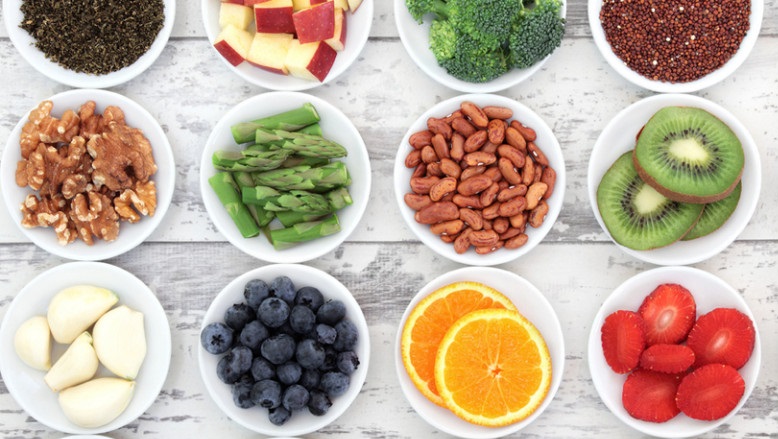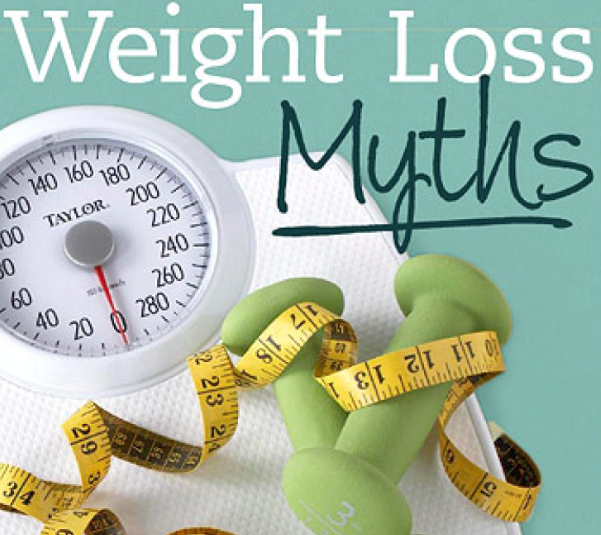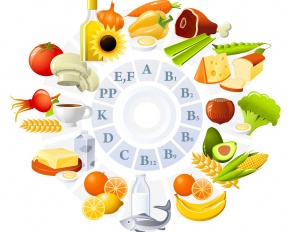Yogurt offers remarkable benefits for those seeking holistic health solutions. For individuals exploring comprehensive wellness resources like those offered at…


Yogurt offers remarkable benefits for those seeking holistic health solutions. For individuals exploring comprehensive wellness resources like those offered at…

We’ve all experienced that “gut feeling,” but for those of us with GI issues, it’s far more than a fleeting…

Nutrition labels can be a helpful tool for making healthier food choices, but they can also seem confusing at first…

You’re not alone if you describe your relationship with chocolate as “complicated.” Approximately 45 percent of women in the United…

For a lot of us, chocolate is more than just a dessert. Chocolate is a mood booster, a reward at…
 Food is fuel. So perhaps a better term for these foods is super fuel—because that’s what your body receives when you eat them—fuel that supercharges you. Think about this … you wouldn’t put just any old junk into your car’s gas tank, right? Of course not! You put gasoline in your gas tank—because, well, that’s all it will take without harming your car. Yet many of us think nothing about putting junk inside our bodies. But isn’t your body so much more important than your car? Now, think of it this way … eating super foods is like not only putting gasoline into your car’s gas tank rather than junk; it’s like putting premium ultra-supreme super-duper unleaded gasoline into it! And with each super food you eat, your body gets that much stronger and healthier. If you’re searching for daily health tips (and you must be—otherwise you wouldn’t be reading this article!), you’ve come to the right place. Following is important information about super foods—what super foods are, their history, how they got to be called ‘super foods,’ as well as which foods have the power to keep your body functioning properly.
Food is fuel. So perhaps a better term for these foods is super fuel—because that’s what your body receives when you eat them—fuel that supercharges you. Think about this … you wouldn’t put just any old junk into your car’s gas tank, right? Of course not! You put gasoline in your gas tank—because, well, that’s all it will take without harming your car. Yet many of us think nothing about putting junk inside our bodies. But isn’t your body so much more important than your car? Now, think of it this way … eating super foods is like not only putting gasoline into your car’s gas tank rather than junk; it’s like putting premium ultra-supreme super-duper unleaded gasoline into it! And with each super food you eat, your body gets that much stronger and healthier. If you’re searching for daily health tips (and you must be—otherwise you wouldn’t be reading this article!), you’ve come to the right place. Following is important information about super foods—what super foods are, their history, how they got to be called ‘super foods,’ as well as which foods have the power to keep your body functioning properly.
 More Americans are overweight today than ever before. In fact, the ‘American Diet,’ as it has been dubbed in recent years, is loaded with fattening foods and fattening habits that have led to our nation’s highest rate of obesity. Yet losing weight tops the list of not only New Year’s resolutions, but nearly every other wish list imaginable. But what does it take to lose weight? And why is such a difficult, even elusive, prospect for so many of us? Perhaps the answer lies in the facts and myths about the prospect of losing weight itself. For instance, did you know that not all calories are equal? It’s true. When you’re planning out how many calories you plan on consuming on your new weight loss program, it’s important to know that not all calories are created equal. There are a number of other important myths to discover about losing weight, and until you learn them, you’ll likely ride that roller coaster of weight loss for a long time. Following are top health tips about the myths of losing weight that will aid you in your journey to a more healthy weight.
More Americans are overweight today than ever before. In fact, the ‘American Diet,’ as it has been dubbed in recent years, is loaded with fattening foods and fattening habits that have led to our nation’s highest rate of obesity. Yet losing weight tops the list of not only New Year’s resolutions, but nearly every other wish list imaginable. But what does it take to lose weight? And why is such a difficult, even elusive, prospect for so many of us? Perhaps the answer lies in the facts and myths about the prospect of losing weight itself. For instance, did you know that not all calories are equal? It’s true. When you’re planning out how many calories you plan on consuming on your new weight loss program, it’s important to know that not all calories are created equal. There are a number of other important myths to discover about losing weight, and until you learn them, you’ll likely ride that roller coaster of weight loss for a long time. Following are top health tips about the myths of losing weight that will aid you in your journey to a more healthy weight.

Most Americans get very little nutrition in their daily diets. According to the President’s Council on Fitness, the typical American diet exceeds the recommended intake limits in four categories, including fats and added sugars, sodium, saturated fats, and refined grains. It also reports that most Americans eat less than the recommended amounts of fruits and vegetables, and 90% of all Americans eat more sodium than what is recommended for a healthy diet. However, perhaps what is most shocking is that the average calorie consumption has increased by 600 calories per day in the past four decades! If one of your goals this year is to eat a healthier diet, here are some tips for living a healthy life that will help you make better decisions every day from here on out so that you can look forward to a long and healthy future.

Most of us are looking for daily health tips that will help us maintain good health. That’s why millions of Americans take vitamins on a regular or at least semi-regular basis. In fact, vitamin use is so prevalent in our society that vitamin sales top 12 billion dollars annually, with their numbers growing daily. Vitamin C, vitamin A, B complex, multivitamins, women’s vitamins, men’s vitamins … the list seems endless. But what benefits are we getting from our vitamins? Are there multiple benefits from each? And does age or gender really matter when it comes to the vitamins you take? Of questions, there are many. Following is a list of the most important vitamins and how each works in the body.

There’s an old saying that “you are what you eat”, if that is true, you want to put the most healthful foods into your body to ensure that you stay in optimum health. Your diet plan should be diverse, with a wide variety of nutrients and healthful substances, and, of course, you want your meals and snacks to be tasty as well. That’s a tall order isn’t it? But, if you follow the Government guidelines and select your meals from each of the major food groups, your reward will be good health the rest of your life.